
How to use Qt WebAssembly – The Complete Guide with demo
Hey, welcome back to another blog post. Today we’re going to talk about the new Qt WebAssembly. This post will […]
Join us at Qt C++ Warsaw Meetup - 21.08.2025
Sign up for free!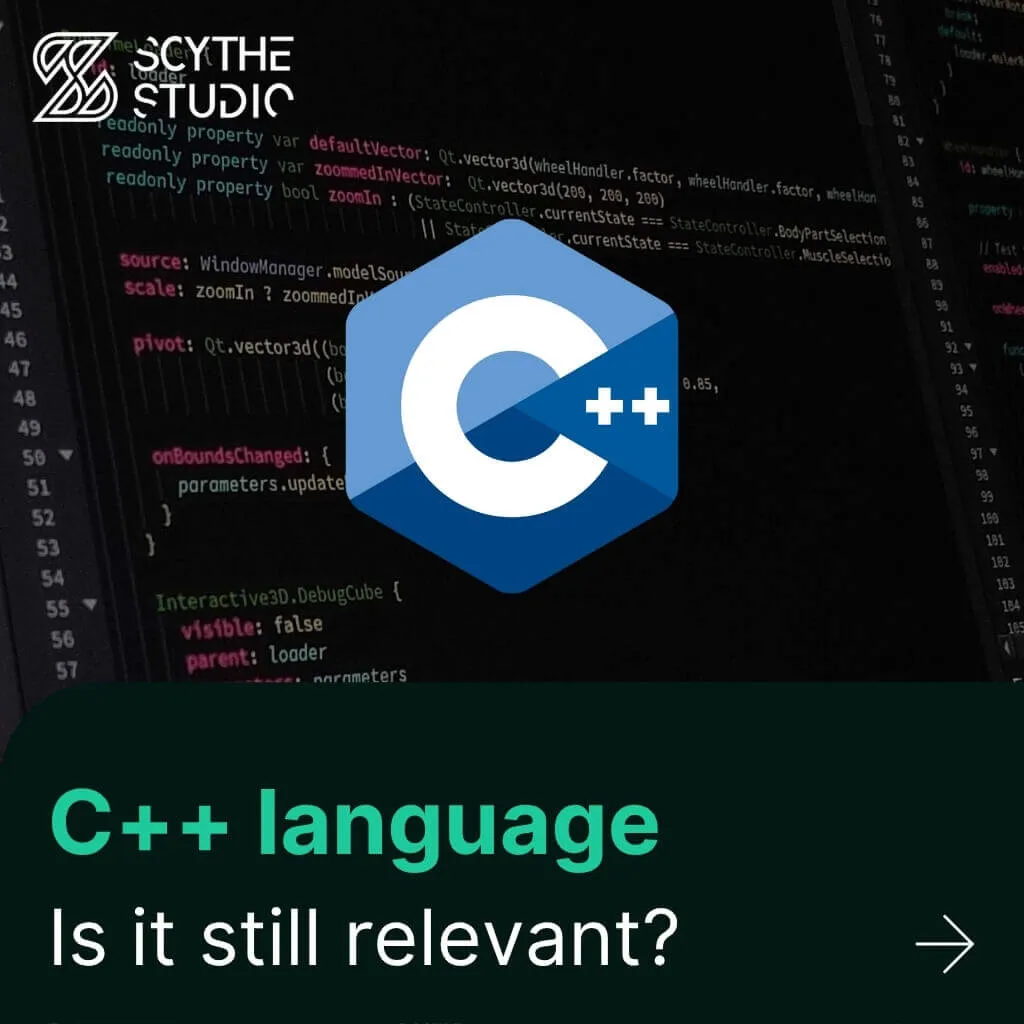
As of May 2025, C++ is at the 2nd place in the TIOBE Index — a strong sign it’s still important in modern software development. C++ was also the TIOBE Programming Language of the Year in 2022, so it’s definitely evolving and getting more relevant. Let’s get to know why C++ is still a relevant language in 2025 — and what makes modern C++ part of the future of software engineering. You will learn the top advantages of this language and how it has evolved over the years.
Looking for support with C++ development? Our experts are here to help — from architecture to implementation.
Let’s start from the very beginning. C++ was designed to provide object-oriented programming facilities together with C’s efficiency and flexibility for low-level programming. This design laid a strong foundation that continues to influence modern software engineering and computer science curricula to this day. Most of the programs we use on a daily basis are written in this language – for example Microsoft Windows, Java Virtual Machine(!), AAA games, major web browsers, and parts of large-scale infrastructure like database engines or CAD software. However, C++ is often underrated and criticized. It is accused of being over-complicated and outdated. Is it justified though?
The good thing about C++ is that it evolves over time. Currently every three years a new standard is completed. It is a good thing as C++ constantly gets new features and improvements to keep it performant and up-to-date compared to other programming languages.
For example, in C++23, std::expected and improved support for modules were added to the standard library. Both of those features make C++ more similar to other languages from syntax and feature perspective. The next version, C++26, promises further enhancements to reflection and pattern matching which are highly anticipated features.
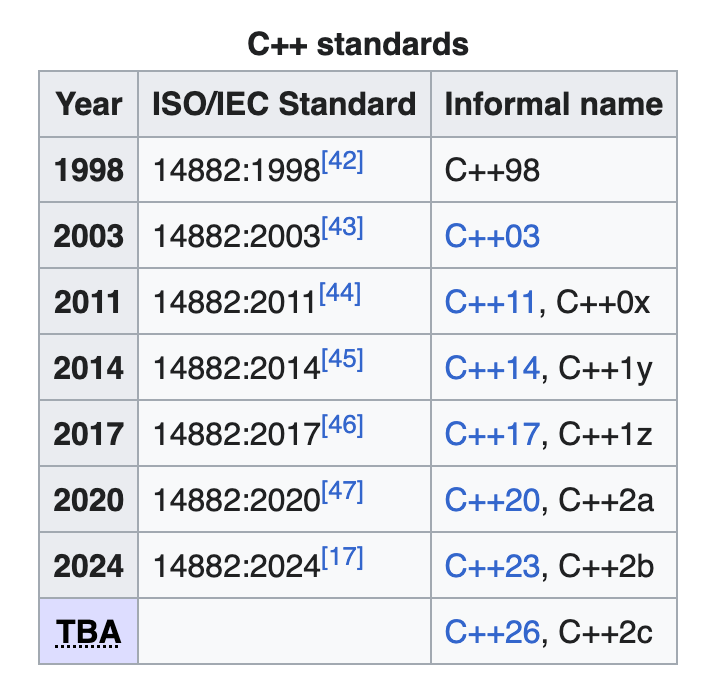
C++23 continues the evolution of the language by focusing on simplification, usability and performance. Not as groundbreaking as C++11 or C++20, but it brings a number of practical and modern features that makes C++ an efficient language to build complex systems.
Here are the top additions and enhancements in C++23:* Modules (Refined from C++20): The module system introduced in C++20 has been further stabilized and refined, making it easier to adopt and improving compile-time scalability across large projects.
constexpr usage to even more standard library functions and language features, so more logic can be evaluated at compile time — useful for embedded and high-performance domains.
std::expected — a safer alternative to error codes and exceptions for returning success/failure results.std::print / std::println — a modern, type-safe alternative to printf or std::cout.std::flat_map / std::flat_set — cache-friendly containers with better performance in certain use cases.static operator() — allowing callable objects to define a static call operator.
Against all appearances, C++ doesn’t stay in place and it still keeps improving. Since 2011, a new standard of this language is published exactly every three years, introducing further improvements and adding new utilities and library support. C++ is being standardized by the ISO committee and, moreover, it has many different compiler manufacturers. It means that it is more resistant to possible turbulence in one specific company. The most crucial advantages of C++ are:
The undeniable advantage of C++ is definitely its manual memory management system, allowing fine-grained control over system resources and low-level memory management — which makes C++ extremely efficient when performance matters. A skilled C++ programmer can write code that achieves the same result while using far less memory than code written in higher-level languages such as Java or C#.
Another crucial advantage of C++ is its compatibility with C as the first one is the superset of the second one. It means that all libraries created for C can be used with C++. This in turn means that all operating systems, driver libraries, and APIs can be used along with C++ natively because they’re written in C. Moreover, C++ can be easily combined with Objective-C, which is crucial in cross-platform development.
Both programming languages exist for quite a long time and because of that, plenty of third-party tools and libraries have been created. Especially in the world of embedded development, it matters that C code often used to operate on the low level, closer to the hardware, can be called directly from C++.
What bytecode-compiled languages do in milliseconds, C++ is able to do in microseconds. It is because C++ is compiled directly into machine code and there is no virtual machine and jitting. Moreover, there are also scenarios when, due to its objectivity, C++ is even faster than C due to an easy member-function template.
Compile time is another topic, but that strongly depends on the project, features, and your compilation time improvements. Anyway, the performance is definitely a reason to use C++ in 2023 and will stay so for a long time.
For example, in a 2023 study comparing the performance of C/C++, Rust, TinyGo and MicroPython on the ESP32 microcontroller, C++ was among the top performers. While Rust showed marginally better results in some algorithms (e.g. FIR filter), C++ consistently demonstrated predictable and highly optimized execution time across all tested algorithms.
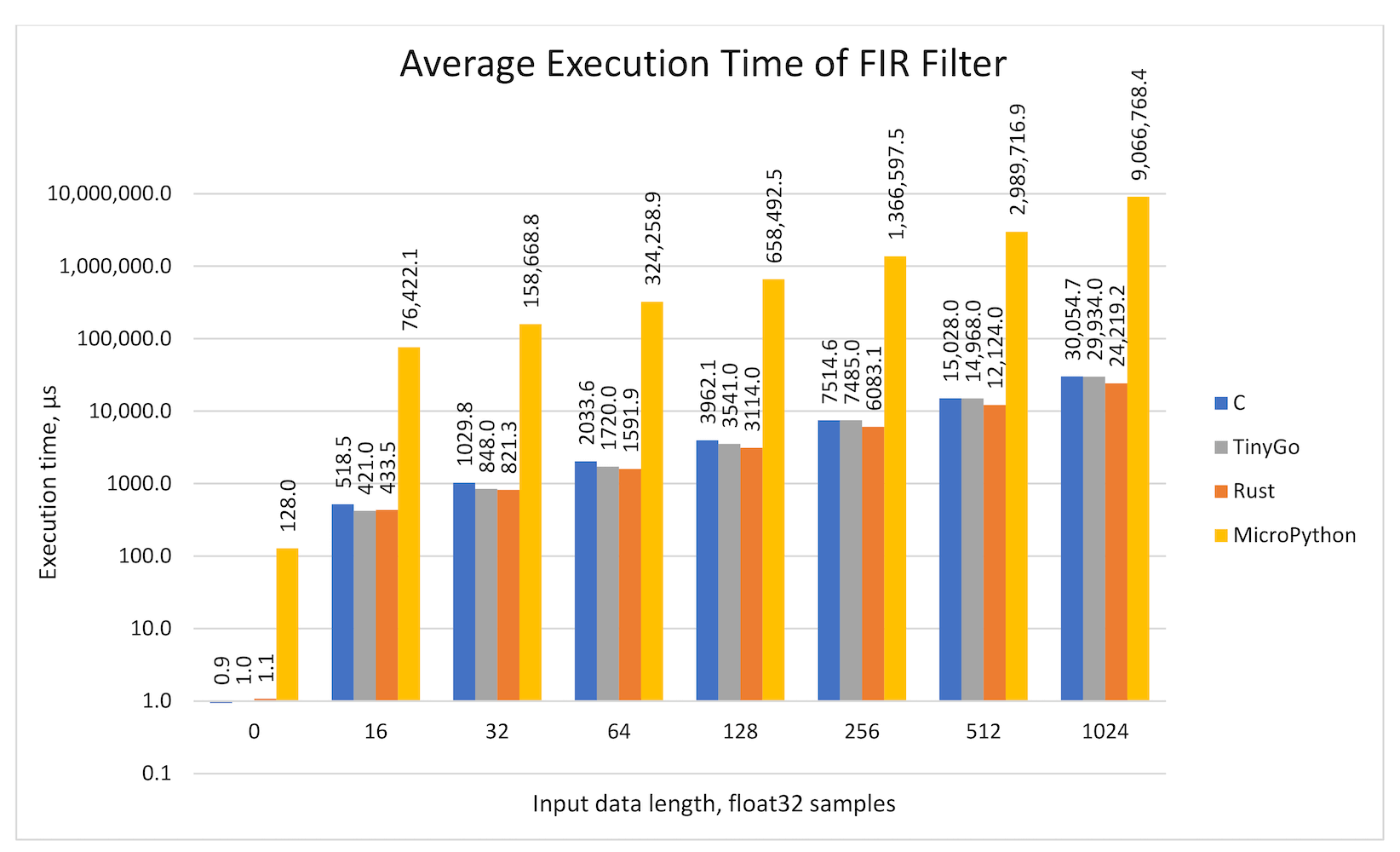
Source : https://www.mdpi.com/2079-9292/12/1/143
Despite the rise of modern challengers like Rust, TinyGo, and Zig, C++ continues to define the standard for low-level performance and control.
It does not force the developer to use a specific paradigm. You can write in it object-oriented programs and use a standard library when it is reasonable, and you can write procedural when object-oriented is redundant.
It is worth noticing that C++ compared to Java is not a fully object-oriented programming language. In C++ the application’s entry point is the main() function. Not the main class.
According to the TIOBE index C++ is currently 2nd most popular programming language in the world and it is not about bragging. This literally means that many programmers use it daily, which translates to a large community, strong job opportunities, and continued high demand for C++ skills. There are plenty of open-source solutions created over the years by the community. The leading framework for C++ development is Qt which is the most popular C++ framework for (not only) GUI development.
One of the most common drawbacks of C++ is complexity and steep learning curve. Unlike many modern high-level languages, C++ does not have automatic garbage collection. Instead it relies on manual memory management and techniques such as RAII (Resource Acquisition Is Initialization) and smart pointers (std::unique_ptr, std::shared_ptr) to manage resources efficiently and safely.
While frameworks like Qt introduce convenience features such as parent-child object trees that simplify memory ownership, developers must still explicitly manage lifecycles which can be error-prone and intimidating for beginners.
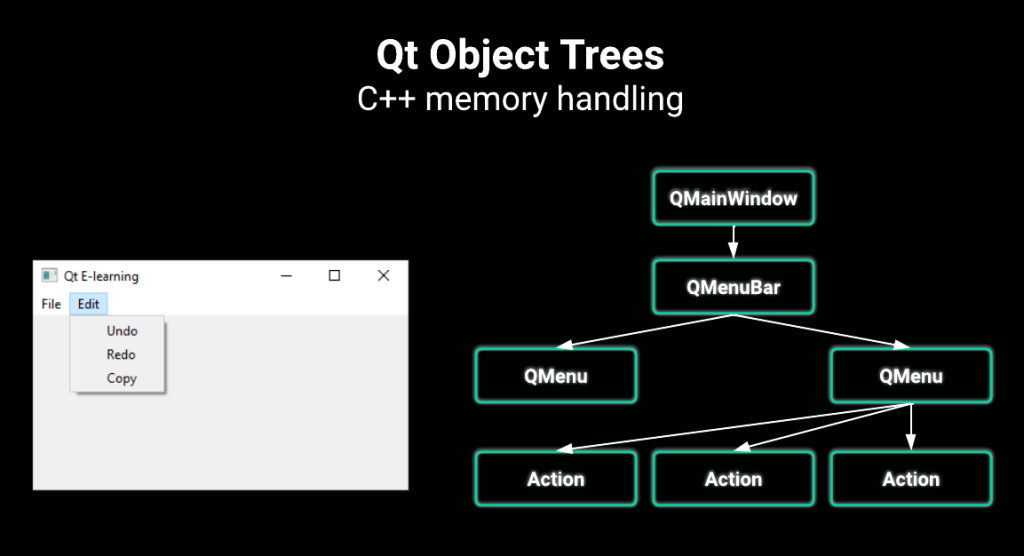
Moreover, C++ exposes developers to low-level constructs like pointers and references which are not present in many higher-level languages. While these features offer fine-grained control and high performance, they can be difficult to grasp for newcomers and increase the risk of bugs when misused.
But with experience, developers often come to appreciate the power and flexibility that these features offer — especially in systems programming, embedded development, and performance-critical applications.
C++ remains a go-to language in domains where performance, efficiency and low-level control are important. Thanks to its ability to operate close to the hardware and its compatibility with C APIs, it’s widely used in system-level programming, embedded development and performance-critical applications.
Some of the key industries and application areas in 2025 include:

While not the first choice for traditional web development, C++ is used in backends and web assembly scenarios where high performance and low latency is required.
C++ can be extended with many interesting frameworks, of which our favorite is definitely the Qt framework. With its help, you can easily create apps for desktops, mobiles, embedded systems, and web assembly. C++ is cross-platform by its nature, and with Qt you can do even more.
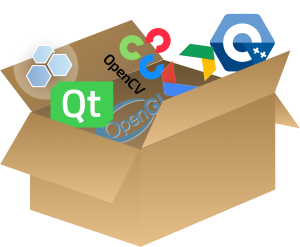
Qt development extends C++ with a parent-child relationship system, which really eases memory management. It delivers V4, a proprietary javascript engine allowing easier event-based programming. Qt’s documentation is describing everything very clearly and there are plenty of tutorials on its official website. Qt is an indispensable aid to any C++ programmer.
There are of course many more frameworks and libraries including OpenCV, OpenGL, STL, and more. All of them can be incredibly useful and can ease C++ programmers’ lives making you not have to reinvent the wheel again and help you reach your destination faster.
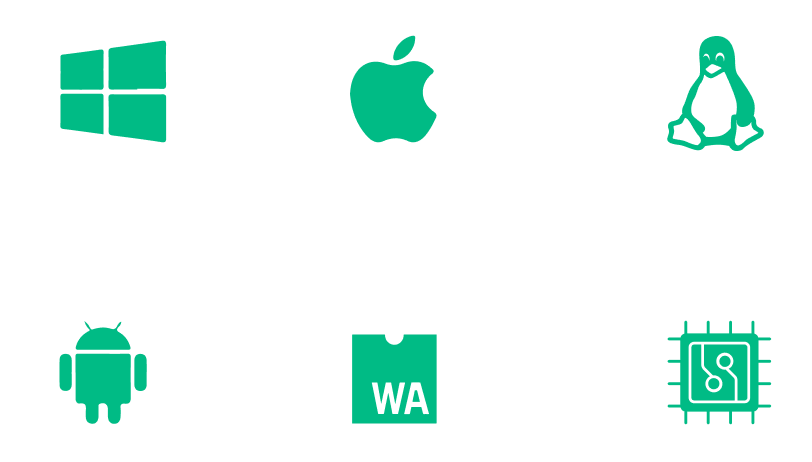
In our opinion without a doubt. However, we’re not going to convince you that this language is in any way better than another. Every language used in the industry has its strengths and weaknesses. However, we believe, projects that can be released using C++ are very different.
In C++ you develop apps for embedded, desktop, mobile, and web platforms, often as part of large-scale systems used by major companies across different platforms. Its compiled source code runs reliably in performance-critical environments. It makes C++ developers’ work not so monotonous as, for example, web developers or SQL developers. People knowing C++ are still very wanted and their earnings are great.
Is it worth learning C++? We believe it is. Despite its complexity and maturity C++ is still widely used in professional projects. Programs written in this language are faster and consume less memory than programs written in high-level other languages. Thanks to new standards, C++ still meets the expectations of professional developers.
Let's face it? It is a challenge to get top Qt QML developers on board. Help yourself and start the collaboration with Scythe Studio - real experts in Qt C++ framework.
Discover our capabilities
Hey, welcome back to another blog post. Today we’re going to talk about the new Qt WebAssembly. This post will […]

Users of embedded devices – from industrial controllers to consumer electronics – are often unaware of hidden vulnerabilities that threaten […]

Graphical user interfaces (GUIs) are becoming more and more important in embedded devices – from home appliances to medical equipment […]